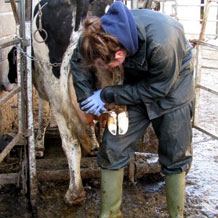- Home
- About the alliance
- Key researchers
- News
- Events
- Case studies
- Climate science: wheat can’t stand the heat
- Controlling major diseases of world crops
- Farming to feed the nation
- Food security in early modern England
- Healthy Food from Healthy Animals
- Helping UK wheat breeders through genomics
- Impacts of agriculture on greenhouse methane capture by soils
- Livestock can produce food that is better for people and the planet
- Managing sheep scab
- Parasitoid webs in organic and conventional farming systems
- Positively managing ecosystems to increase their service value
- Predicting and protecting our pollinators
- Promoting sustainable food consumption and production
- Putting a stop to pain and distress in farm animals
- Seagrass and food security
- Technology to improve water usage efficiency
- The 'push-pull' cropping system
- The North Wyke Farm Platform
- Towards sustainable agriculture
- Transparency of food prices
- Yes we (may) have no bananas
- South West Biosciences Doctoral Training Partnership
- Contact us

Lameness in dairy cattle
Putting a stop to pain and distress in farm animals
University of Bristol
Researchers: Becky Whay and Claire Weeks
Funder: Tubney Charitable Trust
Chronic animal welfare problems on UK farms are being tackled by The University of Bristol Veterinary School working with the Tubney Charitable Trust.
Lameness causes suffering in up to a third of UK dairy cattle at any one time and leads to a loss of animals through early culling, inefficient milk production, and frustration and stress for dairy farmers.
Feather pecking in laying hens also causes pain, is found in almost all flocks and costs the industry over £12million a year in mortality and lost production alone.
The project teams collated scientific information about the risk factors that influence these painful conditions and then developed and tested the best methods of helping farmers to implement this knowledge on farm.
The involvement of dairy companies (MilkLink, OMSCo, Long Clawson, Dairy Crest), laying hen producers (Noble Foods, Stonegate, Country Fresh Pullets) industry bodies and farm assurance schemes (RSPCA Freedom Food, Soil Association, Assured Dairy Farms, BEIC) was essential for success.
The projects developed new approaches that are now showing real results on farms. Different farmers adopted different strategies which meant that the team’s expertise in multi-level statistics is now enabling them to establish which interventions were most useful.
The team also work with economists to ensure the economic gains associated with welfare improvement outweigh any additional costs of adopting the interventions, thereby helping to secure food supplies for the future.
It is not enough for us, as scientists, to know how to manage cattle lameness; we have to find approaches that allow farmers to do it for themselves.
Dr Becky Whay
Scientists have been working on feather-pecking for decades, but only by working alongside farmers can we apply this knowledge to develop practical solutions.
Dr Claire Weeks


